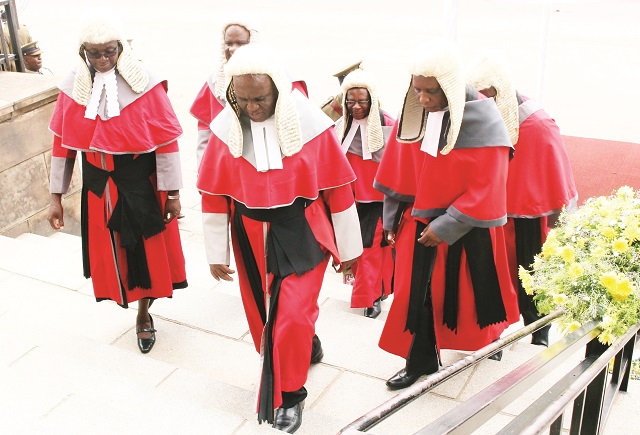THE Constitutional Court (ConCourt) has set February 14 as the hearing date for an application filed by three Zimbabweans, who are challenging restrictive provisions of the Electoral Act, which prevent people living in the Diaspora from participating in local elections.

BY CHARLES LAITON
ConCourt registrar recently published a notice of the hearing, advising that the full bench of the court would sit to hear and determine the application on Wednesday next week.
The setting down of the matter followed a determination by Chief Justice Luke Malaba, who, on January 18 this year, ruled in favour of the Diasporans and allowed them to approach the court demanding their right to vote.
Through their lawyers from the Zimbabwe Lawyers for Human Rights (ZLHR) and the Southern Africa Litigation Centre (SALC), the applicants — Gabriel Shumba, Sibonile Mfumisi, who are both based in South Africa, and one Darlington Nyambiya, who lives in Britain — are seeking an order compelling the Minister of Justice and the Zimbabwe Electoral Commission (Zec) to facilitate the amendment of the Electoral Act (Chapter 2:13).
They want appropriate measures to be put in place to enable Zimbabweans living and working abroad to participate in the country’s electoral processes.
It is the trio’s argument that the residents’ requirements imposed under the Electoral Act are unconstitutional and that the new Constitution, which provides for political rights, allows for every citizen of Zimbabwe to participate in political processes regardless of their location and thus they want some of the restrictive provisions of the Electoral Act struck off the country’s statutes.
ZLHR and SALC also cited the Zec chairperson, Foreign Affairs minister, Finance and Economic Development minister and the Attorney-General as respondents in their official capacities.